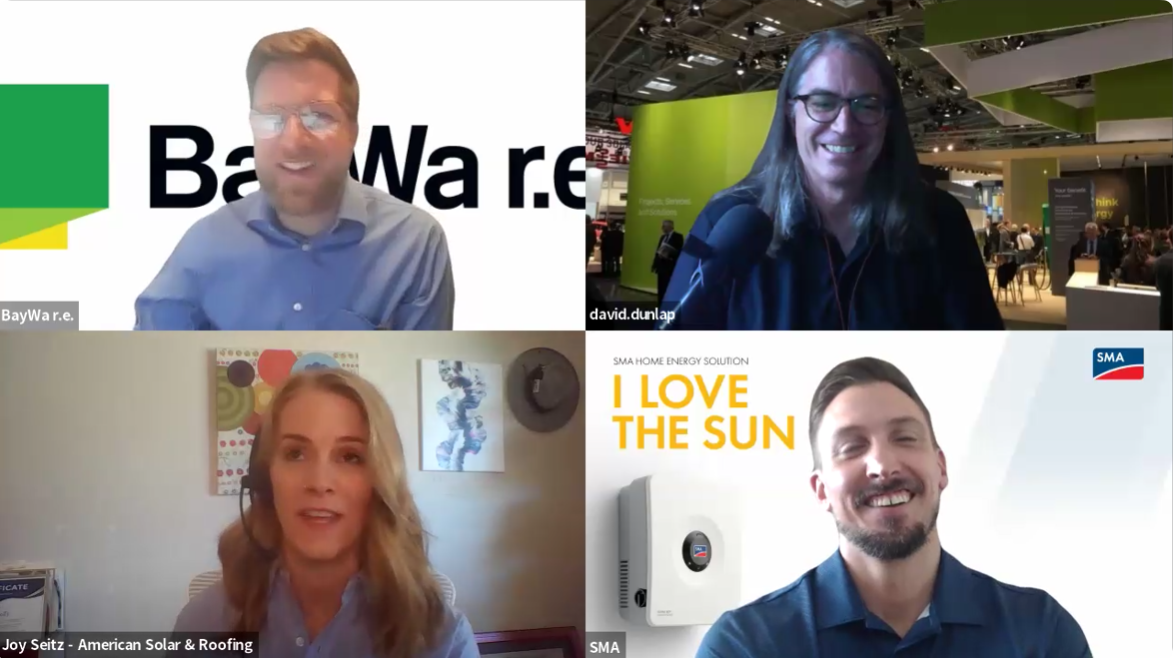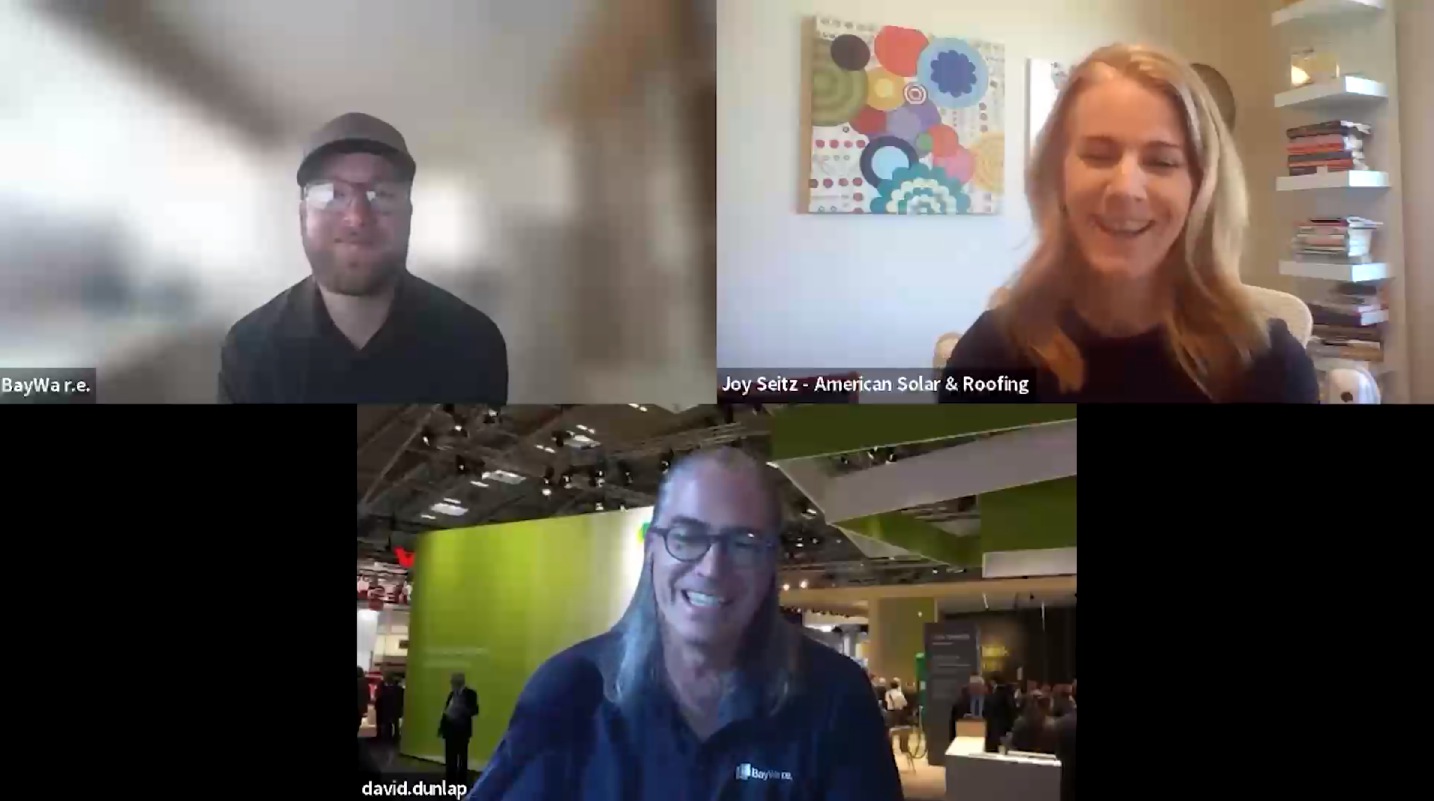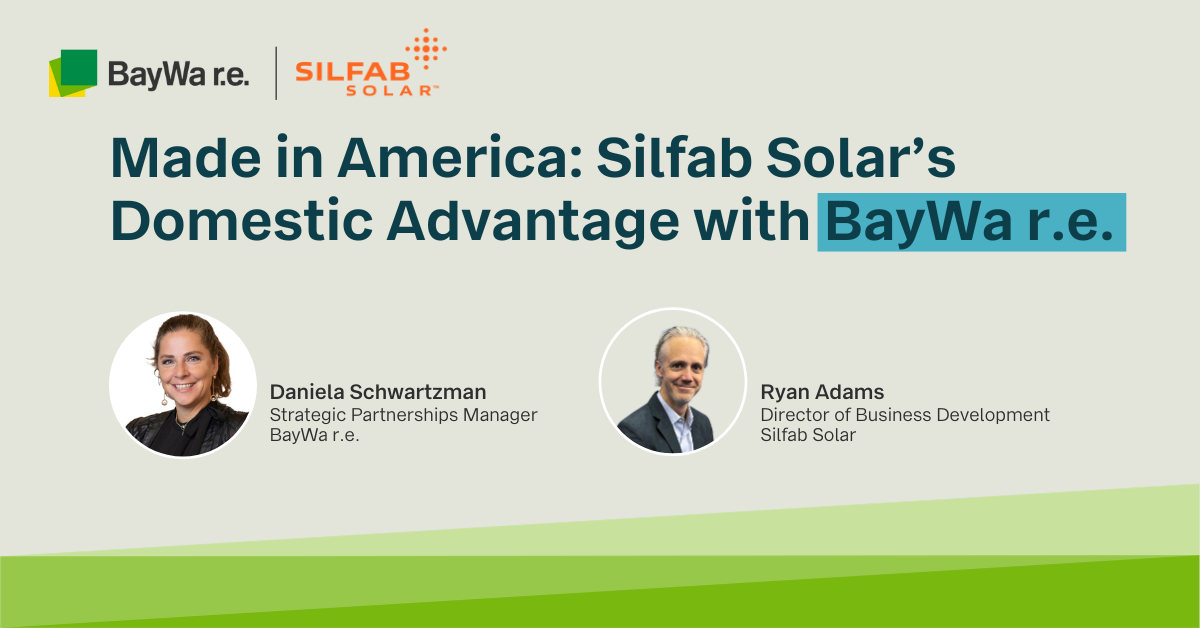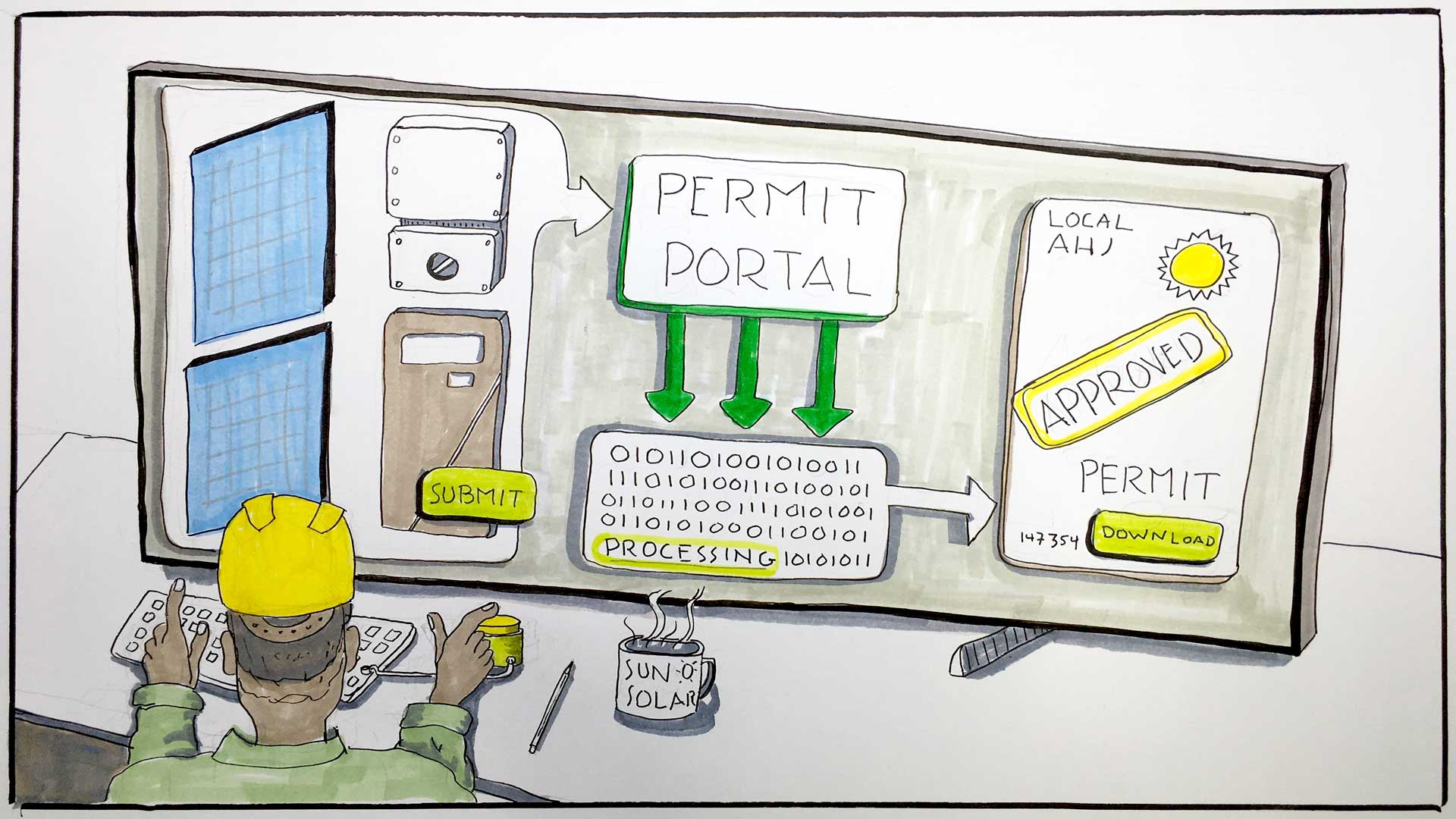
Contractors: Imagine submitting a permit application from the easy access of your home office. You enter the project specs into an online portal, and the software checks your figures against the local code. Your permit is issued almost immediately, and you pick up the phone to let the homeowner know their solar install will stay on schedule.
That’s the kind of convenience and efficiency that the new SolarAPP initiative is promising our solar industry — and BayWa r.e. Solar Systems is proud to provide a grant to help this project pursue its pilot effort. We recently worked with project coordinator Arthur Coulston to discuss their aspirations.
Solving a Long-Time Struggle
Even before the COVID-19 pandemic pushed businesses towards a low-touch environment, our industry had already been struggling to break free from time-consuming permit application and approval processes. In many jurisdictions, solar contractors long had to apply for permits in person, with paper documentation, and wait for hands-on processing of applications and reviews.
When the COVID-19 pandemic first started, everyone realized those in-person, high-touch processes — which we always knew were inefficient — were also unsafe. For essential government services like permitting, it’s important that they are resilient.”
Arthur Coulston
SolarAPP Project Coordinator
Surely, there was a better way to streamline and digitize this process, while still upholding standards for safety and compliance. Enter SolarAPP, conceived a mere two years ago by a group of industry and nonprofit partners. The U.S. Department of Energy (DOE) provided major funding to its National Renewable Energy Laboratory (NREL) to take on software design and engineering, while the Rocky Mountain Institute (RMI), the respected energy think tank, supports pilot testing and development.
So, what does SolarAPP do?
SolarAPP stands for “Automated Permit Processing” and promises exactly that. “When an authority having jurisdiction (AHJ) adopts SolarAPP, contractors will be able to apply for permits using that online platform,” says Coulston, who joined RMI this year. “The contractor enters specifications for their project, and SolarAPP checks each specification for compliance to model codes relevant for that jurisdiction. If the software finds all specs to be compliant, the project will be automatically approved, and a permit is issued. No waiting for manual approval. It takes as much time as you take to type in those project numbers.”

Building Towards Standardization and Adoption
“What that means for the contractor is a lot more control over your timeline,” says Coulston. “Once you know you’ve sold a system, you can plan immediately for install. And you avoid the necessity of a site visit for a project, since none of the information asked by SolarAPP requires one.”
Less waiting for everyone — imagine that. And Coulston knows a thing or two about efficiency: he is co-founder of Mosaic, the popular solar financing digital services company.
SolarAPP is still undergoing pilot testing but is nearly out of the gates. RMI and NREL are working with three California AHJ’s right now — Oceanside, Bakersfield, and Modesto — running their existing, manual permit approval process in parallel simulation with SolarAPP, to correct any shortcomings in the software design. “We’ve run a couple hundred projects through testing and received a lot of great feedback,” says Coulston. “The next goal in the pilot is to issue real permits using SolarAPP alone.”
Another big win for SolarAPP will be standardization. While the software will account for regional differences (like snow load), AHJ’s may also find it helpful to commit to the standards set within SolarAPP. “Because solar was so new, many AHJ’s had to create their own ordinances,” says Coulston. “We see SolarAPP as a next step, assisting AHJ’s in getting over local interpretations and towards a national standard, while accommodating variations in model code currently in-law.”
A Solar Community Effort
The team is also working to ensure that SolarAPP can do more than just recognize specific code-compliant designs — not just one particular inverter setup, for example — but all potential variations and ways of constructing a solar system. It’s required a lot of input from industry professionals and experts.
“Feedback has been great. These pilot AHJ’s are communities with real solar advocates. And there’s so much interest in SolarAPP from across the industry and the building safety community. It’s brought together an amazing coalition.”
Arthur Coulston
SolarAPP Project Coordinator
And BayWa r.e. is proud to be part of this network of supporters. Contractors: keep your ear out as SolarAPP becomes available after its pilot testing — then encourage your jurisdiction to explore this tool for our solar future!
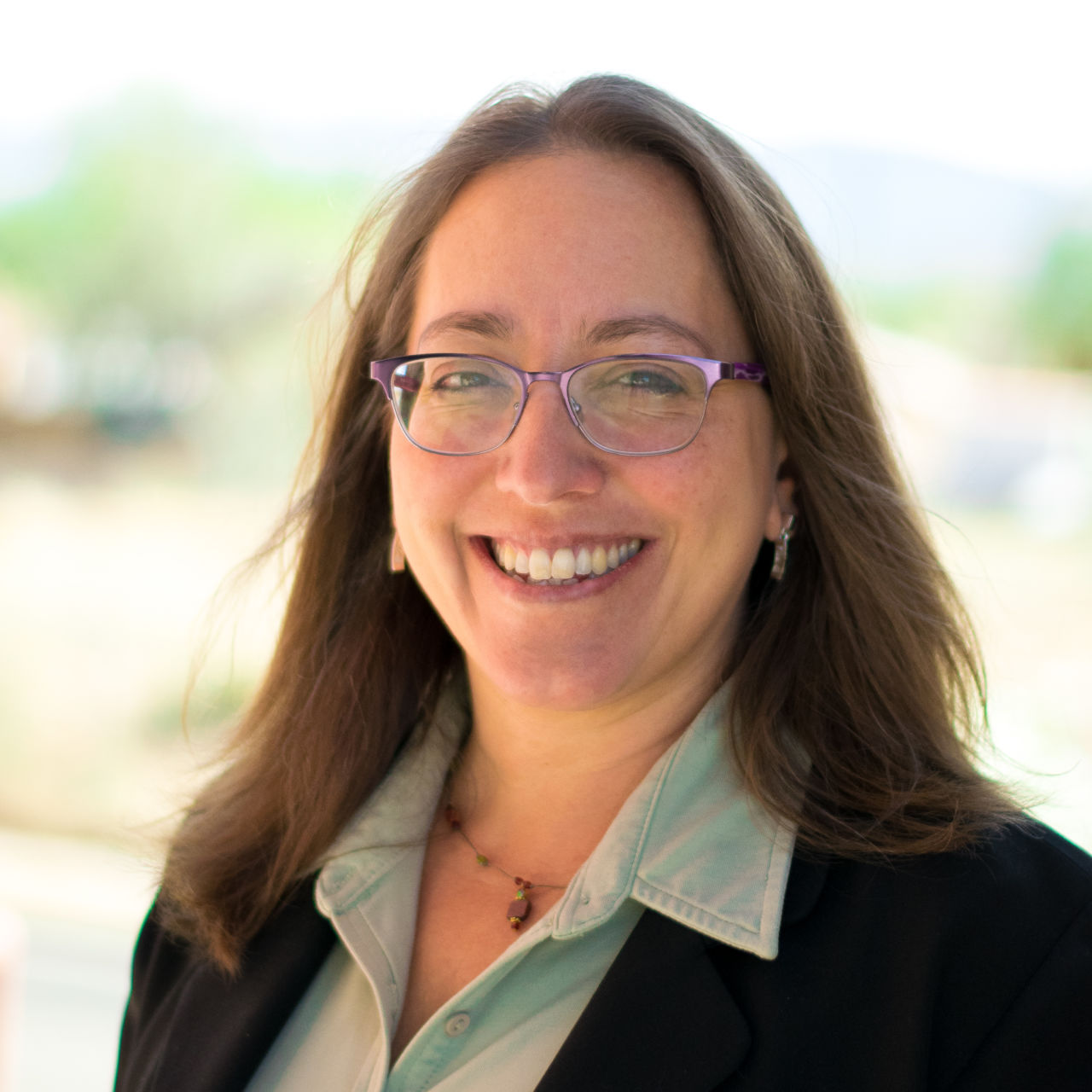
BayWa r.e. Solar Distribution supplies residential and commercial solar installers in the United States with quality solar + storage components, forecasting, business planning advice, and a community of experts. Visit www.solar-distribution.com to engage with our team, read our industry insights articles, and stream our Solar Tech Talk podcasts and recorded webinars on YouTube and Spotify. Follow us on LinkedIn and Facebook to stay connected. Ask us about our Financing Program and use our industry-leading Webstore to save time, get gear shipped, and get jobs done!
Part of the BayWa r.e. Global family of renewable energy companies.

